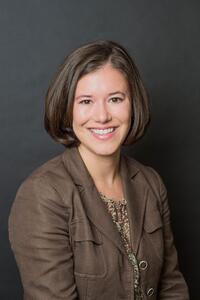Interview with Sarah Bush on the Junior Faculty Manuscript and Research Colloquium
 Interview by Anima Gebele von Waldstein, FAS Graduate Communications Fellow, 2021
Interview by Anima Gebele von Waldstein, FAS Graduate Communications Fellow, 2021
Sarah Bush is Associate Professor Professor on Term of Political Science. Her general research interest lays in democracy promotion – the various efforts of industrialized countries and international organizations, including election monitoring, to advance democracy in the developing world. More specifically, her past research examines how international actors try to aid democracy, promote women’s representation, and support elections in developing countries. Currently she is working on her second book, titled Monitors and Meddlers: How Foreign Actors Influence Local Trust in Elections (forthcoming in 2022, Cambridge University Press) in which she investigates the effects of international actors on election credibility.
Professor Bush used the Junior Faculty Manuscript and Research Colloquium to prepare her book for publication. Now, with her book forthcoming towards the end of this year, she took the time to talk to us about her research and aspirations and what she wants to look into in the future.
Your book has a catching title: “Monitors and Meddlers: How Foreign Actors Shape Local Trust in Elections”. Could you explain what your book is about?
First of all, the book is a joint project with Professor Lauren Prather, a colleague at UCSD who has a similar interest in foreign policy and democracy promotion. We combine evidence from new and original surveys collected in three countries between 2014 and 2018: Georgia, Tunisia, and the United States. These countries have all experienced foreign influence around their elections, and the cases will explore how the book’s arguments apply in countries at different levels of democracy (respectively: partial democratic, transitional, representative). We differentiate between influences countries invite, such as international election observers and those that are uninvited. The uninvited influences are essentially those that we have been hearing a lot about in the news. In the book we refer to the former as monitors, the latter as meddlers.
What or who are you referring to by monitors and meddlers?
A key part of this study is informing people of the presence of observers – or monitors. Amongst others, those can come from international organizations, the Organization of American States or non-governmental organizations such as the Carter Center. They can be domestic or international. While some observers are rigorous, others can be less meticulous. There are differences in the duration of the observation (long term vs. short term), but also in the character of the observation ranging from actual physical observation to observing media environment and campaigning. The idea of course is that election monitoring is independent and the observers neutral.
Those we refer to as meddlers on the other hand are much more prominent in our minds, because – most of the time – they are uninvited, undetected and cause disruption in the election process.
What originally inspired and motivated your research interest in democratization?
The impact of a citizen’s trust is crucial for the entire election process. However, as of yet research on electoral trust has paid less attention to the role foreign actors play in increasing or undermining it. During our research we had the chance to get in touch with some key informants in the respective country and we made some interesting discoveries as to how a citizen’s electoral trust is impacted depending on who does the intervening.
How did you make use of the Junior Faculty Manuscript and Research colloquium?
We did the colloquium quite a while back in November 2019. We invited four Senior faculty members from UC Berkeley, University of Wisconsin, University of Rochester and Harvard, and some colleagues from Yale to join a discussion on our work-in-process on campus. We received extensive feedback from the focused and in-depth workshop.
Who do you think will be most interested in your book?
Aside from the academic audience of scholars in the field of international relations and politics, anyone with an interest in international influences and domestic politics, democracy and election will find some surprising findings in the book. We also hope that the project has relevance for policy makers and partitioners. Arguably, most of our readership will be people who are trying to protect election integrity and security.
What are you excited about working on next?
I am working on a 3rd book at the moment as well. As I am in the earlier stages, I have not settled on a working title, but I can say that this time I will be looking at the changing role of NGOs in world politics. This is not limited to their role in elections, but extends to other areas such as the environment. I seek to describe and explain trends in the founding and death of organizations at certain times and alongside c